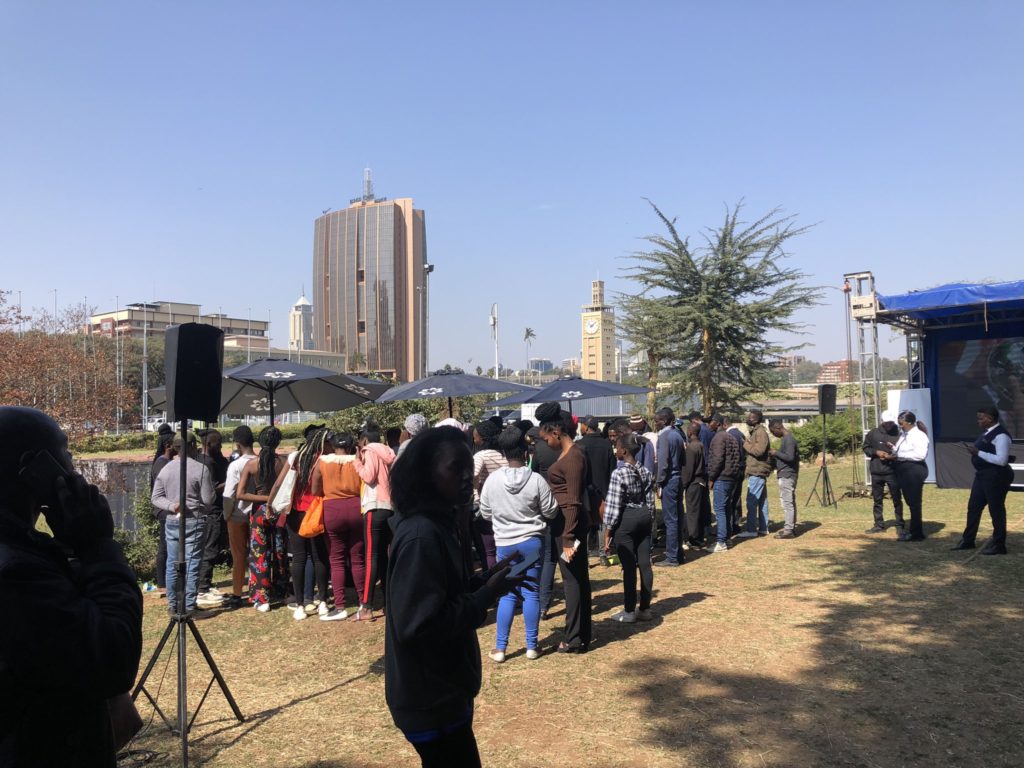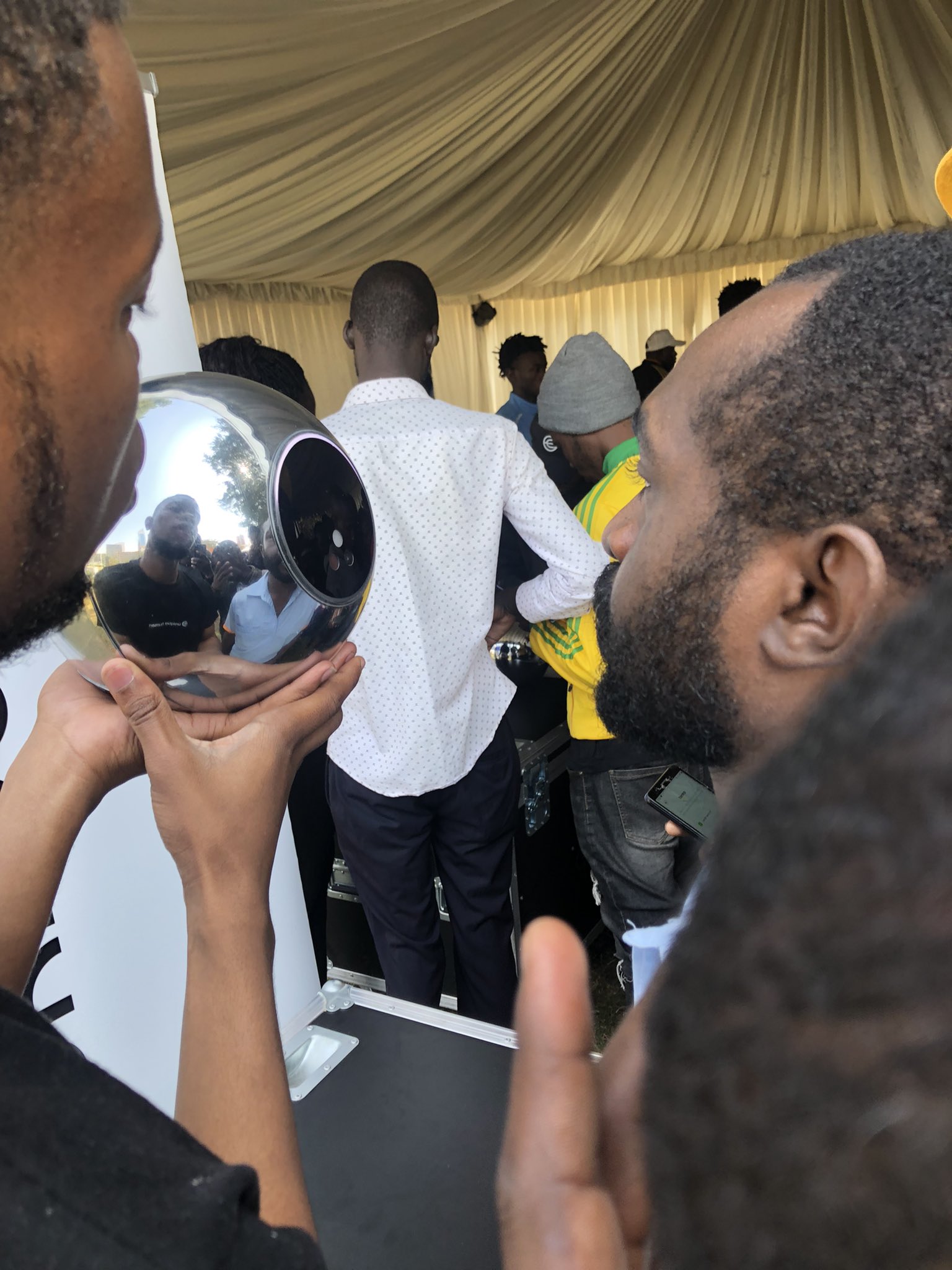Sam Altman’s creepy vision of an iris-scanning ‘Global Digital Currency’ is gaining popularity in Kenya. Kenyans are queuing in shopping malls to scan their iris in exchange for Worldcoin tokens worth 7700 Kenyan Shillings. And crypto firms in Kenya are riding on the coattails of Worldcoin’s popularity to help participants change their free tokens to cash.
Last week, Worldcoin, a blockchain company founded in 2019 by Open AI chief, Sam Altman, Max Novendstern, and Alex Blania, launched their iris-scan-for-token orbs globally, after trial runs in Indonesia, Chile, Kenya and 24 other countries. On Wednesday, July 26, two days after the global public launch, Altman tweeted that one person was being “verified” every 8 seconds.

Kenyan crypto firms latch on
After registering and scanning their irises, participants are given 25 Worldcoin tokens. But to convert that token to cash, they have to sell the tokens for USDT (a virtual US dollar) on a crypto exchange that lists Worldcoin’s virtual currency. They can then resell USDT for local currency.
By the end of the first day of launch, each Worldcoin token was worth $2.1 or 299 Kenyan Shillions. Every person who scans their iris on Worldcoin’s shiny orbs gets 25 Worldcoin tokens (or WLD) which is worth an estimated KES7,700 or roughly $54. Data from Take Profit, a data analytics provider puts the average monthly pay of low-wage earners in Kenya at around KES15,000 monthly before tax.
Enterprising crypto firms in Kenya have taken advantage of the crowds being attracted to Worldcoin’s orbs to recruit customers. On Sunday, KotaniPay, a local crypto company tweeted a video inviting people who had scanned their irises at the Kenyatta International Convention Centre to visit their booth to exchange WLD for Kenyan Shillings.
Charles Nichols, founder and CEO of Nuzo, a crypto payments company which also sells everyday food items like maize flour and smartphones and TVs invited people who had registered and scanned their irises at the Kenyatta International Convention Centre to swap WLD tokens for NuzoCoins and discounted maize flour.
Nuzo is offering up to 375 Kenyan shillings per WLD token, or 9,375 Kenyan Shillings.
Kenya’s data protection agency, the Office of the Data Protection Commissioner (ODPC) released a statement on Friday warning Kenyans about scanning their irises in exchange for crypto tokens. “Individuals are advised to thoroughly inquire about how their data will be used,” the statement read in part.
But digital policy analysts have criticised the statement and the agency for not being forceful enough. Before last week’s global launch, Worldcoin had been advertising in several malls in Nairobi throughout much of 2022 where it enlisted the help of young unemployed Kenyans and students to recruit participants for its beta launch. A source close to Kenya’s crypto industry says the firm may have obtained licences from the data protection agency before the launch.
Despite the statement from the data protection office, Kenyans continue to throng Worldcoin orb locations in the hopes of free cash. Altman who also leads Open AI, the artificial intelligence company that launched in December 2022 says Worldcoin is necessary to distinguish between humans and artificial intelligence, distribute universal basic income and as KYC to access formal financial services. Neither he nor Worldcoin has explained what it plans to do after collecting iris scans. But the project has come under criticism and is being investigated in several countries, including the United Kingdom and France.















